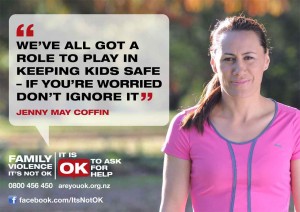Earlier today the Coalition for an Ethical Psychology sent the message below to all members of the Board and Council of the American Psychological Association, as well as to several hundred leaders of APA’s many divisions. The APA’s Annual Convention is next week in Orlando, Florida, and we are hoping that annulment of the PENS Report will be a significant topic of discussion there. The documents mentioned below are not attached to this email, but they are accessible through the hyperlinks provided. Again, we greatly appreciate your support. Thank you!
Sincerely,
Roy Eidelson, on behalf of the Coalition
July 26, 2012
Dear Members of the APA Board and Council of Representatives:
As members of the Coalition for an Ethical Psychology, we appeal to you, in advance of your upcoming meetings in Orlando, to take an historic stand for psychological ethics against continued participation of psychologists in harsh military and intelligence operations. With this stand the American Psychological Association can reassert its ethical leadership in international and scientific psychology.
Based upon our campaign to annul the PENS (Psychological Ethics and National Security) Report, we have developed the attached “A Resolution to Annul the APA PENS Report” (www.ethicalpsychology.org/pens/A-Resolution-to-Annul-the-APA-PENS-Report.pdf). It presents the compelling and urgent case for annulment, in the form of a formal resolution for Council consideration. Undeniably, there are powerful financial, institutional, and ideological forces aligned against the effort to establish a firm ethics-based foundation for psychology in national security settings. But we are hoping there is at least one member on Council willing to introduce this Resolution as a New Business item at next week’s Council meeting.
Our Call for Annulment of the APA’s PENS Report has received the support of a truly grassroots movement. Nearly three-dozen organizations (representing tens of thousands of people) and over 2,000 individuals have endorsed the Coalition’s annulment petition. The second attached document (72 pages), titled “Supporters of PENS Annulment,” provides a complete list of endorsers to date (www.ethicalpsychology.org/pens/Supporters-of-PENS-Annulment.pdf). In addition to groups respected nationally and internationally, you will also see many familiar names among the individual petition signers, including current and past leaders of the APA who have served the Association long and well. They too believe it is long past time for APA to annul PENS.
Finally, the third attached document is titled “Adversarial Operational Psychology Is Unethical for Psychologists” (www.ethicalpsychology.org/pens/Adversarial-Operational-Psychology-Is-Unethical-for-Psychologists.pdf). In this brief paper – based in part on consultation with veteran military and intelligence professionals who have worked with psychologists – we introduce the ethical case against what we refer to as “adversarial operational psychology.” It is our strong conviction that this particular form of operational psychology, which includes psychologist involvement in the interrogation of national security detainees, is inconsistent with the core ethics of our profession.
We are very interested in your views and we welcome dialogue. We believe that annulling the PENS Report will open up the space for constructive engagement about these issues. At that point, we believe it is essential that there be a broad-based, independent, and transparent discussion examining the relationship between psychological ethics and operational psychology. This is precisely what did not happen in 2005, when the PENS Task Force acted instead to rubber-stamp the policies of the U.S. military and intelligence agencies in regard to acceptable roles and activities for psychologists in their operations. The discussion we have in mind must not be held under APA auspices and must extend beyond APA members to other major stakeholders, including non-APA-member and international psychologists, human rights advocates, military intelligence professionals and military ethicists, Guantánamo habeas attorneys, and released detainees.
Thank you in advance for the time and consideration given to the three attached documents. Please share your reactions with us. And please step forward at your Board and Council meetings next week to introduce and support the Resolution to Annul the PENS Report.
Sincerely,
Roy Eidelson
Jean Maria Arrigo
Trudy Bond
Brad Olson
Steven Reisner
Stephen Soldz
Bryant Welch
A Resolution to Annul the APA’s PENS Report
That Council annul the American Psychological Association’s (APA’s) 2005 Presidential Report on Psychological Ethics and National Security (the “PENS Report”).[i]
WHEREAS reports circulated as early as 2004 that psychologists acted as planners, consultants, researchers, and overseers to abusive and sometimes torturous interrogations at Guantánamo Bay Detention Center, Bagram Air Base, and CIA “black sites”;[ii]
WHEREAS the PENS Task Force ignored the Board mandate to inquire into the specific public reports of psychologist involvement in abusive interrogations at Guantánamo, the CIA’s secret prisons, and elsewhere, in spite of the fact that the Task Force contained several members with direct knowledge of the torture and other abusive interrogations conducted or aided by psychologists;[iii]
WHEREAS the PENS Report nevertheless endorsed psychologists’ involvement in interrogations of national security detainees as a means to ensure that they are safe, legal, ethical, and effective;
WHEREAS six of the nine voting members of the PENS Task Force were on the payroll of the U.S. military and/or intelligence agencies, and several of them were drawn from chains of command accused of abuses under the purview of Task Force ethical guidance;[iv]
WHEREAS the military members of the PENS Task Force required as a condition of their participation that the PENS Report be framed within U.S. law rather than international human rights law, even though APA is an accredited NGO to the United Nations;[v]
WHEREAS senior representatives from the APA Ethics Office, Public Affairs Office, Science Directorate, and Practice Directorate were undisclosed participants in the weekend PENS Task Force meeting;
WHEREAS some of these representatives engaged in high-level lobbying for Department of Defense (DoD) funding and had a vested interest in a PENS Report compatible with then current DoD policy;[vi]
WHEREAS a significant conflict of interest existed for the Director of the APA Practice Directorate (who played a dominant role during the Task Force meetings) because his wife was an active duty, SERE-trained psychologist who served at Guantanamo; she was also responsible in part for developing the practice and training models for psychologists involved in detainee interrogations at Guantanamo;[vii]
WHEREAS the employment status of several Task Force members and others in attendance required or encouraged them to support psychologist participation in national security interrogations and to accommodate the Bush Administration’s permissive legal definition of torture rather than the stricter definition of torture in international human rights law;[viii]
WHEREAS the Task Force and unacknowledged participants presumed, without introducing evidence, the military necessity of psychologist involvement in interrogation and detainee operations;
WHEREAS the PENS Task Force presumed that the current APA Ethics Code adequately addressed complex ethical issues associated with psychologist involvement in national security operations, that no new ethical standards were needed, and that national security concerns justified subordinating individual interests to government interests;
WHEREAS the PENS Task Force declined to consider the challenges in adapting the APA Ethics Code to operational psychologists working under military authority and military exigencies, including the difficulty or impossiblity of ethical monitoring of actions and of obtaining independent consultation in classified settings;
WHEREAS there was little or no consultation with psychologists from other specialties that would be affected by, and concerned about, the policy, and no subsequent period was provided for member feedback;
WHEREAS the PENS Task Force Chair designated two non-members of the Task Force – the Directors of the Ethics Office and the Office of Public Affairs – as the sole spokespersons for the Task Force, and a highly unusual confidentiality agreement bound the Task Force members from discussing the process or the Report with others;
WHEREAS official APA acceptance of the PENS Report departed from standard APA procedures in the following ways: the director of its Ethics Office was appointed as “rapporteur” and he produced the full draft report at the close of the two-and-a-half-day meeting; the Task Force members were given 24 hours to accept or reject the report; the APA Board of Directors invoked its emergency powers to endorse the PENS Report, preempting a standard review and vote by the Council of Representatives; and approval was not sought from the Policy and Planning Board, the Board of Professional Affairs, or the Board for Advancement of Psychology in the Public Interest;[ix]
WHEREAS the identities of the PENS Task Force members were not included in the Report, were not posted on the APA’s website, and were withheld from members of the APA and members of the press requesting them;[x]
WHEREAS these processes were far outside the norms of transparency, independence, and deliberation for similar task forces established by the APA and by other professional associations;
WHEREAS two voting members of the Task Force not employed by national security agencies, upon further reflection after the pressured weekend meeting, rejected the PENS Report and called for its annulment, with one resigning from the Task Force in protest;
WHEREAS the PENS Report has been cited routinely in Behavioral Science Consultant policy memos as supporting psychologists’ involvement in detention, interrogation, and debriefing operations, including in the assessment and exploitation of individual detainee “vulnerabilities” for intelligence purposes;[xi]
WHEREAS the PENS Report is being used to support the promotion of “operational psychology” – which includes applications of psychology to direct harm to those identified as potential adversaries – as an official area of specialization for psychologists;[xii]
WHEREAS the PENS Report is repeatedly cited as a resource for ethical decision-making in the APA Ethics Committee’s recent “casebook” on National Security Commentary;[xiii]
WHEREAS the PENS Report has contributed to significant harm to vulnerable populations by supporting policies that permit abusive treatment; has badly damaged the reputation of the profession of psychology; has diminished the APA’s commitment to advance psychology “as a means of promoting health, education and human welfare;” has compromised the integrity of the relationship between professional psychology and the security sector; and, according to some senior interrogators and intelligence professionals, has undermined national security;
WHEREAS the PENS Task Force meeting was purported to be the one forum where the ethics of psychologist involvement in problematic national security activities were discussed and resolved, yet Task Force members failed to engage in any substantive dialogue about psychological ethics and national security;
THEREFORE BE IT RESOLVED that the APA’s Report of the Presidential Task Force on Psychological Ethics and National Security (PENS Report) is hereby annulled.
July 26, 2012
[iii] The Agenda Item presented to the APA Board at its February 2005 meeting called for the proposed PENS Task Force to address the following issues:
- What appropriate limits does the principle “Do no harm” place on psychologists’ involvement in investigations related to national security?
- To the extent it can be determined, given the classified nature of many of these activities: What roles are psychologists asked to take in investigations related to national security?
- What are criteria to differentiate ethically appropriate from ethically inappropriate roles that psychologists may take?
- How is psychology likely to be used in investigations related to national security?
- What role does informed consent have in investigations related to national security?
- What does current research tell us about the efficacy and effectiveness of various investigative techniques?
- Would the efficacy and effectiveness of various investigative techniques, if demonstrated, affect our ethics?
- Has APA responded strongly enough to media accounts of activities that have occurred at Abu Ghraib and Guantanamo Bay?
Note: To review the entire document, see American Psychological Association Board of Directors. (2005, February 16 & 17). Agenda item 3: Task force to explore the ethical aspects of psychologists’ Involvement and the use of psychology in national security-related investigations: Request for board discretionary funds. In J. M. Arrigo, Unoffical records of the APA PENS Task Force, Hoover Institution Archives, Stanford University, Stanford, CA.
[v] More detailed information on the stances of the individual Task Force members and others involved in the meetings can be obtained by reviewing the publicly available compilation of emails from the Task Force listserv: http://s3.amazonaws.com/propublica/assets/docs/pens_listserv.pdf. For example, APA President-Elect Gerry Koocher wrote, “I have zero interest in entangling APA with the nebulous, toothless, contradictory, and obfuscatory treaties that comprise “international law.” Rather, I prefer to see APA take principled stands on policy issuesd where psychology has some scientific basis for doing so” (p. 160). The PENS Report itself states the following in regard to the role of human rights standards in an ethics code: “While all Task Force members felt that respect for human rights is critical, some task force members felt strongly that international standards of human rights should be built into the ethics code and others felt that the laws of the United States should be the touchstone” (p. 9).
[vi] For example, the October 2004 issue of the APA’s Science Policy Insider News (SPIN) notes that staffers Geoff Mumford and Heather Kelly, both of whom subsequently attended the meetings of the PENS Task Force, met with high-ranking DoD psychologists, including Task Force member Scott Shumate, to discuss possible areas of collaboration (http://www.apa.org/about/gr/science/spin/2004/10/also-issue.aspx).
[vii] See page 5 of this report prepared for the U.S. Army Medical Research and Materiel Command, in which LTC Debra Dunivin (the aforementioned psychologist) is listed as Principle Investigator: “The overriding issue centers around the deployment of the project’s principle investigator Dr. Debra Dunivin, to Task Force GTMO in Cuba shortly after the mid-term report was submitted in April 2004” (http://www.dtic.mil/cgi-bin/GetTRDoc?Location=U2&doc=GetTRDoc.pdf&AD=ADA436945). Also, see page 167 of the PENS Task Force listserv, in which on 8/12/2005 COL Louie M. Banks writes: “Last Friday, I spent eight hours with the Army’s Surgeon General, LTG Kiley, along with Larry James, Debra Dunivin, and several others. We were trying to establish the doctrinal guidelines and training model for psychologists performing this job. The TF report provided, again, a solid anchor to use in our deliberations” (http://s3.amazonaws.com/propublica/assets/docs/pens_listserv.pdf).
[viii] See discussion of this and related issues throughout the PENS Task Force listserv (http://s3.amazonaws.com/propublica/assets/docs/pens_listserv.pdf). For example, R. Scott Shumate wrote: “I hope I can speak for my colleagues in the Department of Defense that we embrace the discussions and various viewpoints that will be represented at the table during the next four days. I look forward to sorting out the ethical guidance that we will recommend to the APA while also being vigilant that we are not there to debate nor confront the past, present nor future policies of the Administration or the Department. I believe that we can do what is right for psychology while holding reserve on those aspects that we have neither the authority nor the charge to address” (p. 85).
[ix] The PENS Report was publicly released on July 5, 2005, prior to the August Council of Representatives meeting and less than one week after the Board met in emergency session (http://www.apa.org/news/press/releases/2005/07/pens.aspx). That Council did not vote to approve the PENS Report is explicitly confirmed by this “Correction” in the May 2006 Monitor on Psychology(http://www.apa.org/monitor/may06/correction.aspx): “It was [previously] written that the Presidential Task Force on Psychological Ethics and National Security (PENS) report ‘was accepted by APA’s Council of Representatives.’ Council did not accept the report, as in early July 2005, the Board of Directors invoked emergency action on council’s behalf to adopt the PENS Report as APA policy.”
[x] See Mark Benjamin’s August 2006 Salon article “Psychologists Group Still Rocked by Torture Debate” (http://www.salon.com/news/feature/2006/08/04/apa), which includes the following: “But a link to the biographies of those task force members appeared on the APA Web site only after the publication of Salon’s article. Farberman acknowledged that the APA did put the link to the bios of the task force members on its site after Salon published its story.” Benjamin was able to publish the names only after obtaining them from Congressional sources. Also, on the PENS Task Force listserv (http://s3.amazonaws.com/propublica/assets/docs/pens_listserv.pdf), Task Force member Michael Gelles wrote this in regard to the actions of Stephen Behnke, director of APA’s Ethics Office, at the August APA Convention that year: “I was once again impressed with how Dr. Behnke eloquently represented our work and insured the confidentiality of the panel, despite pressure to reveal the identities of the task force members and the process that unfolded during the Task Force meetings” (p. 169).
[xi] For example, the PENS Report is included as an enclosure/appendix to OTSG/MEDCOM Policy Memo 09-053 on detainee interrogations from the office of the Army Surgeon General, titled “Behavioral Science Consultation Policy” (https://www.qmo.amedd.army.mil/credentialing/09_053.pdf).
[xii] The “Twelve Guiding Statements” of the PENS Report are presented as the foundational ethics document for operational psychology in the appendix of Ethical Practice in Operational Psychology: Military and National Intelligence Applications, edited by Carrie H. Kennedy and Thomas J. Williams (2011; Washington, DC: American Psychological Association Press).









